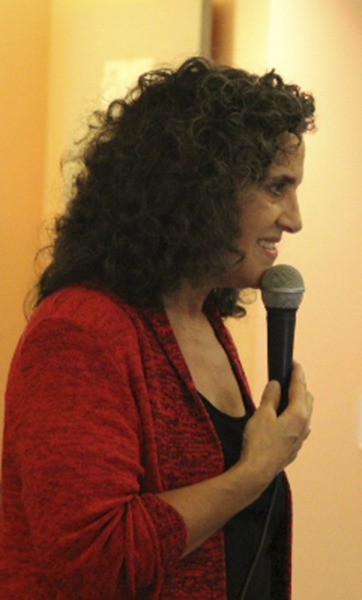You are not crazy, it just means you are a human being. Everything you are experiencing is normal.
These were phrases that were repeated recently by Dr. Julie Gottman.
“Grief is the distressing emotional response to any loss, including feelings, thoughts and behaviors,” said Gottman. “It is not a disease or a disorder. It is fundamentally human.”
Gottman’s presentation “Understanding and Coping with Death” at the Senior Center on Sept. 17 was part of a two-day seminar called “Managing your golden years.” The workshops were presented by the Orcas Cares Partnership. Topics included Medicare 101, living safely at home and protecting your assets.
Gottman is a psychologist and the co-founder of The Gottman Institute, and clinical supervisor for the Couples Together Against Violence study.
During her two-hour talk she spoke with seniors about confronting the myths of grief. She told the audience that often people believe that your goal should be “to get over” grief, but it’s not usually possible.
“Grief does not disappear,” she said. “It may change shape or form, but it doesn’t disappear.”
Gottman lost her father to cancer when she was 21 and said even 50 years later the feeling of that loss has not gone away, which is not necessarily a negative.
“The return of the grief honors his memory,” said Gottman.
During the talk, she also talked about her own experiences of contracting polio at just 11 years old. The polio caused Gottman to have to give up her love of skiing and other sports.
“If you have lost or are losing some aspect of yourself, what that aspect meant to you before the loss influences your grieving,” she said.
When one is grieving, people tend to think they are moving through stages outlined by the famous Elisabeth Kübler-Ross in her 1969 book “On Death and Dying.” These stages include denial, anger, bargaining, depression and acceptance.
According to Gottman the process is much more unpredictable.
“We do not go through it in an organized fashion,” she said. “We are all over the place.”
She refers to the “stages” as dimensions that include denial, confusion, anxiety, physiological changes, explosive emotions, guilt and depression.
“It’s like being transported to another planet,” said Gottman about traveling through grief.
For more info about senior services, visit www.orcasseniors.org and to learn more about Gottman, visit www.gottman.com.



